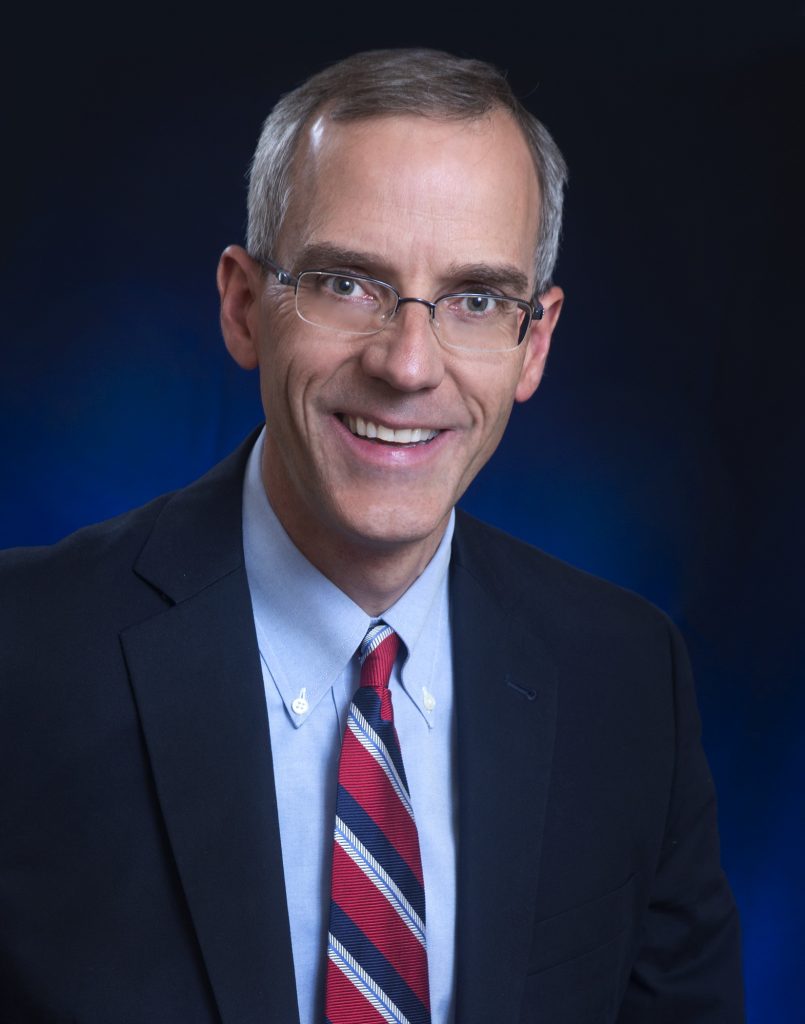Ashbrook Program Inspires Utah College President to Develop Comprehensive Interdisciplinary Course
December 24, 2020

When Scott Wyat t enrolled in Ashbrook’s Master of Arts in American History and Government (MAHG) program, he was not trying for a salary bump. “The Master’s would qualify me to earn less at my institution,” he quipped. Wyatt is President of Southern Utah University.
t enrolled in Ashbrook’s Master of Arts in American History and Government (MAHG) program, he was not trying for a salary bump. “The Master’s would qualify me to earn less at my institution,” he quipped. Wyatt is President of Southern Utah University.
Wyatt sees his role at Southern Utah as improving “the quality of education.” Whereas many of his peers emphasize fundraising, Wyatt prioritizes academic planning, finding that when donors see educational progress, they respond more readily to appeals. Unlike other college presidents, Wyatt himself teaches “an intro-level course in American national government, using my MAHG experience as a model for study with original documents.”
Before beginning the Master’s program, Wyatt had found himself picking up books on history that his hectic schedule prevented him from finishing. Yet throughout a busy career, he’d set aside time for hiking vacations. “I said to myself, maybe I should go on an intellectual backpacking trip.” After finding Ashbrook’s program on the internet, he took his first residential course in the summer of 2012. He loved it, and “decided to discipline myself to move through the degree. Being goal-oriented, I know I will not do all the reading unless my ego’s on the line for a grade.”
the line for a grade.”
“I have found Ashbrook’s Masters program to be the most rich and meaningful educational experience I
have ever had,” Wyatt says. It has pushed him to explore connections between American history and his own experience.
He gained this experience by welcoming challenges. After law school, he entered a law partnership, and became a Cache County Attorney, prosecuting high-profile felonies. He won election to the Utah state legislature, where he served on the House Higher Education Committee. Then he became President of Snow College, leading a realignment of the career and technical programs at the two-year institution to fit local economic needs. He oversaw record increases in both enrollment and fundraising. Under his leadership, the college was ranked in the top 10% of junior colleges in America, with one of the highest rates of graduation and transfer to a four-year school. In 2014 Wyatt left to lead Southern Utah.
Ashbrook’s program “has been extremely helpful as I think through my own teaching approach,” Wyatt says. At Southern Utah, he and faculty colleagues are developing an interdisciplinary, 34-unit course covering students’ entire general education requirement. Focusing on the theme of “freedom” in America, Wyatt will open the course, examining the tension between the Founders’ assertion of human equality and the reality of slavery, which after the Founding came to be justified by southerners as a “positive good.” Faculty from other disciplines will “jump in as needed. A biologist will review 19th century theories of racial differences, a mathematician will examine the statistics that discredit the theories, while a psychologist will examine the mental processes that allow people to justify practices others find wrong. An English professor will lead a study of Uncle Tom’s Cabin,” Wyatt explained.
Students will learn in each academic discipline only the tools they need to examine the theme of freedom. The usual introductory course marches students through every concept needed to major in a discipline. “One study found that in an intro biology class students have to master more vocabulary than in a foreign language class. Students who aren’t really interested in biology don’t see the relevance to their lives,” Wyatt said, and this leads to a “huge failure rate in general education classes at most universities.”
Wyatt shares the Ashbrook vision of education that equips free people to think independently and thoughtfully. Citizens, he said, need “to understand other people and ideas, to recognize differences yet appreciate how everything is connected. Education should enrich our lives while teaching us to take a responsible place in the world.”

